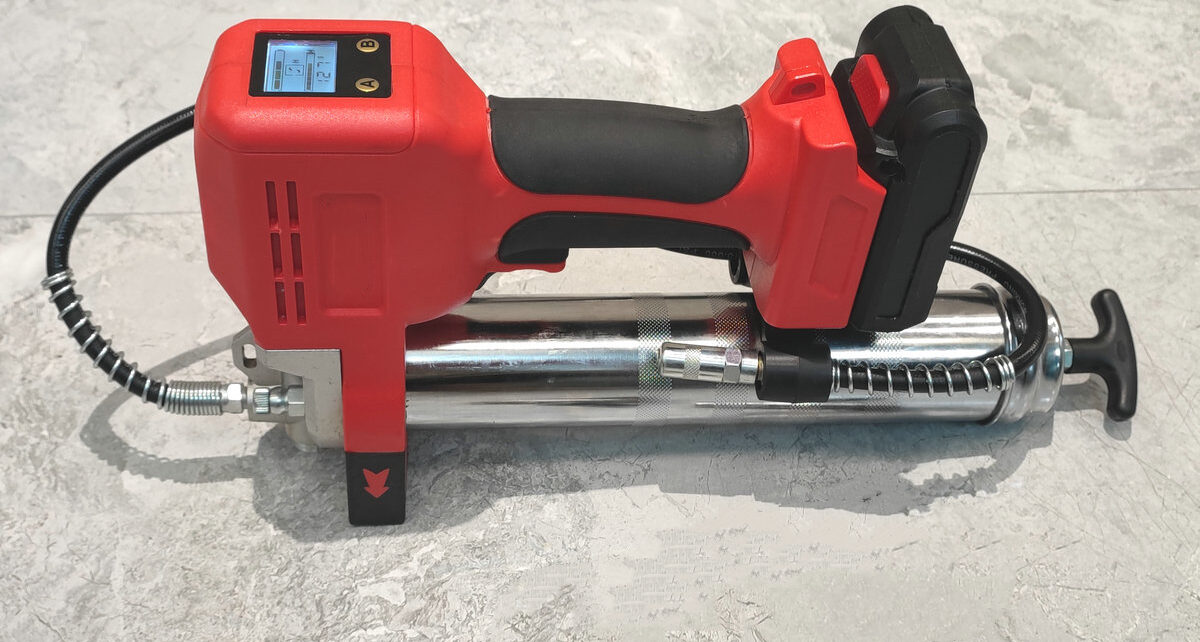The grease used in grease guns is very important for mechanics, professionals, and even home users. However, not all grease types are ideal for every piece of equipment. Depending on the type of machinery – heavy or light – the most suitable grease and grease equipment changes.
Steps You Should Take Before Choosing Grease Equipment
Below are some factors and requirements that influence the choice of the grease for the best grease gun that you should buy:
- Take into account the nature of the system equipment, operational circumstances, application techniques, and environmental factors
- Investigate whether the original equipment manufacturer (OEM) or industry standards outline measurable performance prerequisites
- Employ simulations, models, software, and industry expertise to gauge both qualitative and quantitative requirements of grease
- Adhere to federal, local, and company-specific regulations that may affect the transportation, handling, storage, disposal, and legality of particular greases
Factors that Influence the Selection of Grease
Apart from the steps that you are taking, you need to be mindful of the factors that influence the selection of a grease gun. If you buy from top lubrication equipment suppliers, you can control the negative factors that influence the selection of grease:
- Load and Speed: Consider the load-bearing capacity and speed requirements of the equipment. Greases with higher viscosity and extreme pressure additives may be needed for heavy loads or high-speed applications.
- Compatibility: Ensure compatibility with the materials used in the equipment, including seals and other components. Incompatible greases can lead to damage and reduced performance.
- Water Resistance: If the equipment is exposed to water or moisture, choose a grease with good water resistance to prevent corrosion and maintain lubrication effectiveness.
- Equipment Type: Different types of equipment may require different types of grease. Consider whether you are lubricating bearings, gears, slides, or other components.
- Operating Conditions: Evaluate the operating environment, including temperature, pressure, and exposure to water or contaminants. Greases are formulated to perform optimally under specific conditions.
- Temperature Range: Ensure that the grease can withstand the temperature range of your application. Some greases are designed for high-temperature environments, while others are better suited for low temperatures.
- Thickener Type: Greases are typically classified based on their thickener types, such as lithium, calcium, aluminum, or polyurea. Each thickener type has its advantages and is suitable for specific applications.
- Additives: Consider additives based on the specific needs of your equipment, such as anti-wear additives, rust inhibitors, and extreme pressure additives. These can enhance the performance and longevity of the grease.
- Re-lubrication Interval: Determine the desired re-lubrication interval for your equipment. Some greases are formulated for extended service intervals, reducing the frequency of maintenance.
- Regulatory Compliance: Ensure that the selected grease complies with any relevant industry or regulatory standards. This is particularly important in applications where specific performance criteria must be met.
- Brand and Quality: Choose greases from reputable manufacturers known for producing high-quality lubricants. High-quality greases can provide better protection and longer equipment life.
- Cost Considerations: While cost is a factor, it should not be the sole determining factor. Consider the total cost of ownership, including maintenance and equipment replacement costs, when evaluating different greases.
Never Underestimate the Value of Testing Before Selecting Grease for Equipment
The importance of testing when it comes to the best grease and grease gun accessories cannot be denied. The great thing about the best grease and lubrication equipment manufacturers is that they take care of the testing aspect. Due to accurate testing, they can deliver top-quality products regularly.
Below are some common tests that determine if the grease delivered from grease equipment will be as per expectation:
- ASTM D217, DIN 51818 (Cone Penetration of Lubricating Grease)
- ASTM D445, (Kinematic Base Oil Viscosity) and ASTM D2270 (Calculating Viscosity Index from Kinematic Viscosity at 40C and 100C
- ASTM D2266 (Wear Preventative Characteristics of Lubricating Grease (Four-Ball Method)
- ASTM D2596, DIN 51350 (Measurement of Extreme Pressure Properties of Lubricating Grease)
- ASTM D4049 (Determining the Resistance of Lubricating Grease to Water Spray)
Results from these test methods can help indicate the critical capabilities of the grease:
- Is it suitable for the system type, considering factors like NLGI Grade and base oil viscosity?
- Does it offer adequate capability to mitigate system damage or failure, including wear and extreme pressure characteristics?
- Can it endure exposure to water, as indicated by factors such as water spray-off and water washout?
- Does it function effectively as a grease at elevated temperatures, as evidenced by its dropping point?
- Is there minimal phase separation, as observed in limited oil bleed? Can it be efficiently pumped at low temperatures, considering factors like flow pressure?
Final Thoughts
Many things influence the choice of grease and grease equipment. It is important to analyze every factor before buying grease. Apart from the basic criteria, it is important to focus on how a manufacturer tests the grease. Purchasing from top-tier lubrication equipment manufacturers is a great way to ensure that the grease you buy is of the highest quality.




